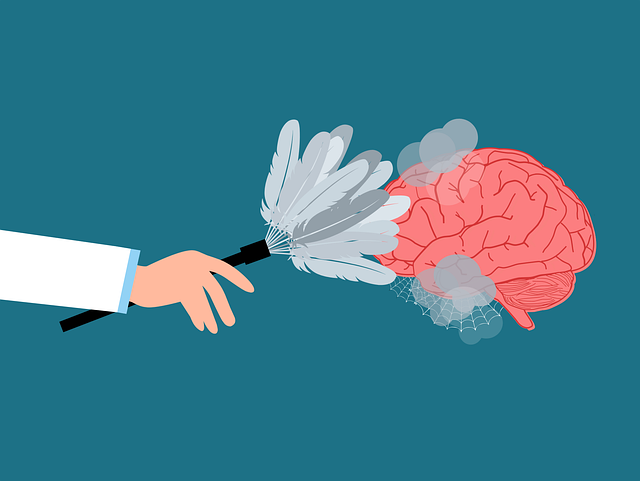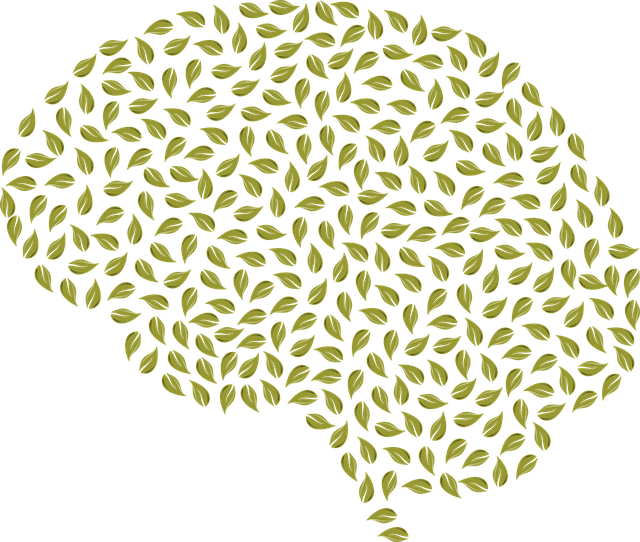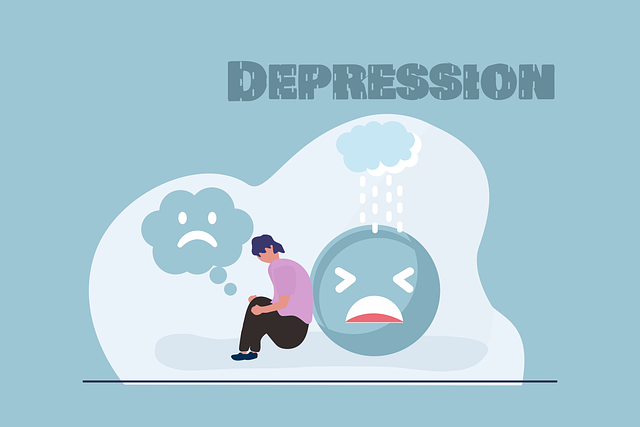Post-Traumatic Stress Disorder (PTSD) is a complex mental health condition triggered by trauma, impacting daily life and well-being with symptoms like flashbacks and heightened arousal. Early detection and Aurora Post-Traumatic Stress Disorder therapy are crucial. Workshops for stress management should include interactive activities, practical tools, and personal narratives tailored to specific stressors. Integrating Aurora PTSD Therapy into these workshops offers evidence-based coping mechanisms against trauma and chronic stress, fostering understanding and safety. This holistic approach enhances overall workshop effectiveness in promoting mental well-being and resilience.
Stress management workshops are powerful tools for individuals dealing with post-traumatic stress disorder (PTSD). This article delves into the importance of these programs, offering a comprehensive guide. We explore PTSD, its symptoms, and triggers, providing insights for understanding this complex condition. Next, we discuss designing engaging workshops, emphasizing practical techniques. Finally, we highlight Aurora Post-Traumatic Stress Disorder Therapy and its successful implementation in workshop settings, showcasing a transformative approach to managing PTSD.
- Understanding Post-Traumatic Stress Disorder (PTSD): Symptoms and Causes
- Designing Effective Stress Management Workshops
- Implementing Aurora PTSD Therapy in Workshop Settings
Understanding Post-Traumatic Stress Disorder (PTSD): Symptoms and Causes

Post-Traumatic Stress Disorder (PTSD) is a mental health condition that can occur following exposure to traumatic events. It’s more than just feeling stressed or anxious; it’s a complex disorder that impacts an individual’s daily life and overall emotional well-being. Symptoms can manifest in various ways, including persistent re-experiencing of the trauma through flashbacks, nightmares, or intrusive thoughts, avoidance of situations or reminders related to the event, heightened arousal and hypervigilance, and negative changes in cognition and mood.
Several factors contribute to the development of PTSD, with one significant component being the individual’s exposure to a traumatic event. This could range from military combat, accidents, natural disasters, to severe violence or abuse. Cultural competency training for healthcare providers is crucial here, as awareness of diverse cultural experiences and expressions of trauma can aid in early detection and effective Aurora Post-Traumatic Stress Disorder therapy. The Mind Over Matter principles emphasize the power of mental resilience and offer valuable tools to manage symptoms. Through these techniques, individuals can learn to reframe negative thoughts, practice mindfulness, and develop coping strategies to promote emotional well-being.
Designing Effective Stress Management Workshops

When designing effective stress management workshops, it’s crucial to create a structured and engaging curriculum that addresses various aspects of mental well-being. Start by identifying specific stressors relevant to your target audience—whether it’s workplace pressures, personal challenges, or trauma like Aurora Post-Traumatic Stress Disorder (PTSD) Therapy. Incorporate interactive activities such as Mindfulness Meditation practices, Conflict Resolution Techniques role-plays, and group discussions to foster a safe learning environment.
Ensure the workshop is balanced, offering both theoretical knowledge and practical tools for coping. Utilize visual aids, real-life case studies, and personal narratives to illustrate concepts. Encourage participants to share their experiences while emphasizing confidentiality. Regularly assess feedback and adapt future sessions based on these insights to continuously improve Mental Health Education Programs Design and ensure the workshops remain relevant and impactful.
Implementing Aurora PTSD Therapy in Workshop Settings

Integrating Aurora Post-Traumatic Stress Disorder (PTSD) Therapy into workshop settings offers a transformative approach to stress management. This evidence-based practice is tailored to help individuals navigate and overcome trauma, making it particularly valuable for workshops focused on burnout prevention. By incorporating techniques like cognitive processing therapy and exposure therapy, participants can develop effective coping mechanisms to manage stress and avoid the escalating effects of chronic stress or secondary trauma.
Workshops that prioritize empathy building strategies and crisis intervention guidance benefit immensely from Aurora PTSD Therapy. The therapeutic framework encourages a safe space for sharing experiences, fostering understanding among participants. Moreover, it equips facilitators with essential tools to provide immediate crisis intervention, ensuring that those struggling with stress receive timely support. This holistic integration enhances the overall effectiveness of workshops, promoting mental well-being and resilience in a supportive environment.
Stress management workshops, designed with a focus on Aurora PTSD Therapy, can significantly enhance individuals’ coping mechanisms and overall well-being. By understanding the intricacies of Post-Traumatic Stress Disorder, workshop facilitators can tailor sessions to address specific symptoms and causes. Implementing evidence-based practices, such as Aurora PTSD Therapy, allows for effective navigation through traumatic memories and triggers, fostering a supportive environment where participants can learn valuable tools to manage stress and rebuild their lives.








